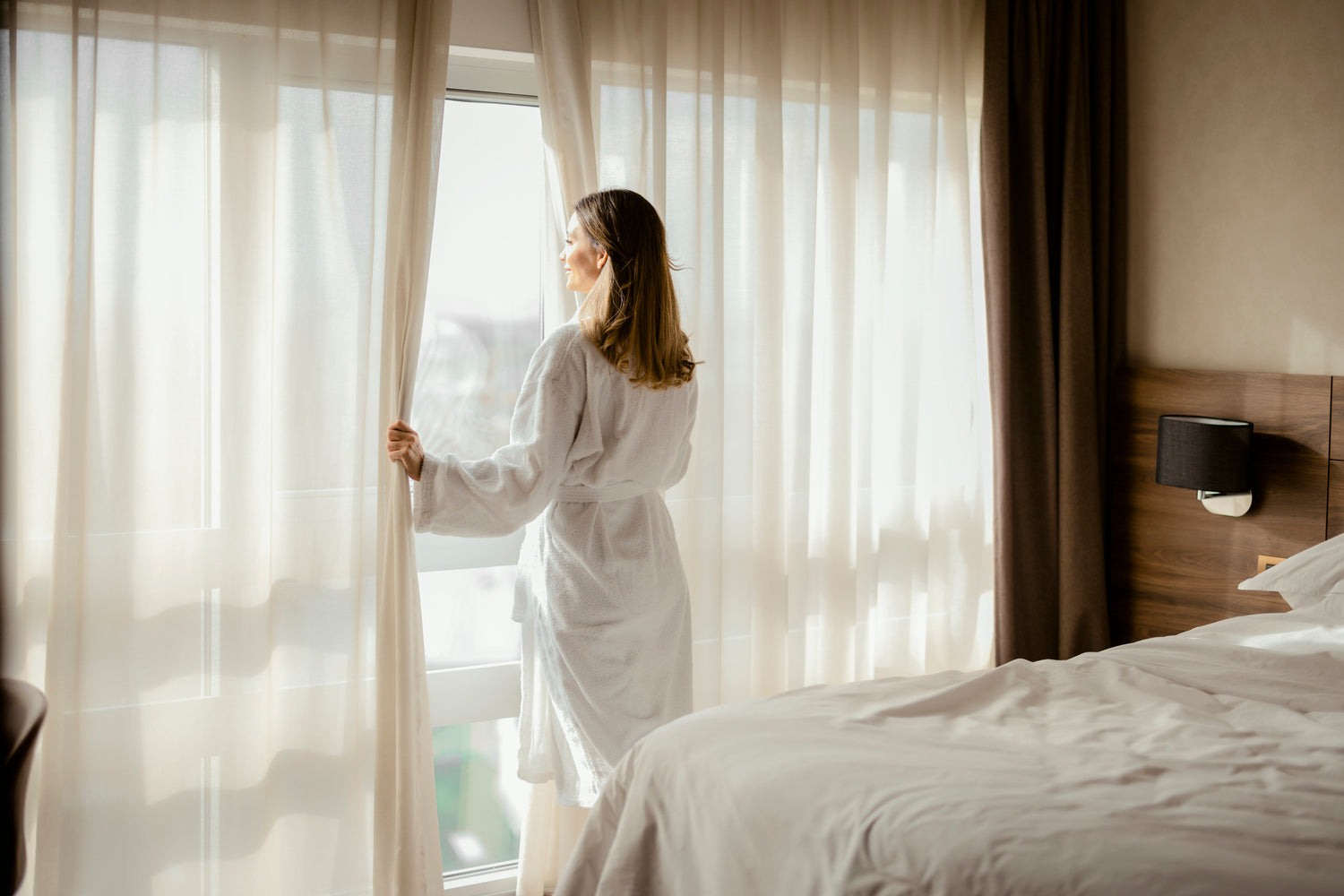Stress is the most common cause of insomnia. While a few "bad nights" in a difficult situation are a natural and often desirable phenomenon (mobilization to escape, fight, or devise a strategy to overcome adversity), improper behavior can lead to the perpetuation of this condition. Find your way to insomnia.
What to do to prevent insomnia?
First of all, you need to remember the rules of sleep hygiene. That is, if you can't fall asleep for a long time or you feel very restless, you should leave the bed. Otherwise, it starts to be associated with the discomfort of not being able to fall asleep in it. It is also not advisable to drown out your anxiety while lying in bed with the internet, television, a book or the radio. Many people, unable to fall asleep, reach for their mobile phone or turn on the TV. Such behavior makes the room brighter, and the bed starts to be associated with this activity, instead of sleeping, and the reflex of sleeping in bed disappears.
Before going to bed, it is worth doing a pleasant and quiet activity for 30 minutes to calm down, and generally, it is worth avoiding intense physical exertion 2-3 hours before going to bed.
Many people who can't sleep start working at night. This is also wrong, because it disrupts the sleep-wake rhythm, and disrupts the body. After getting out of bed, we should do something calm and monotonous - sorting laundry, taking notes on what's on our minds...
Another important rule that helps prevent insomnia is to maintain regular, not too long sleep times, around 6-8 hours, and above all, get up at the same time. Sleeping off a bad night causes a decrease in the need for sleep in the evening and deepens the difficulty in falling asleep and fragmentation of sleep.
Another improper strategy for dealing with sleep problems, but also with stress in general, is "self-medication" with alcohol. This carries the risk of addiction, but also drinking alcohol, although it makes falling asleep easier, causes a deterioration in the quality of sleep. During the night, the alcohol concentration drops and then sleep becomes shallower, the tendency to wake up and have nightmarish dreams increases. The systematic use of sleeping pills is also similarly dangerous. They should be used only on demand, occasionally and under the supervision of a doctor.
To sum up, to protect ourselves from insomnia we should use:
- calm down before going to bed, avoid intense exercise before going to bed,
- getting out of bed if we can't sleep,
- after getting out of bed, engage in a quiet, monotonous activity,
- avoid watching, listening, surfing the internet, reading a book in bed,
- regular bedtimes, getting up at a regular time, even if we couldn’t fall asleep for a long time,
- avoiding naps during the day,
- avoid alcohol at night,
- use of sleeping medications occasionally and under medical supervision.
Insomnia and sleep deprivation worsen our ability to cope with stress. We become irritable, exhausted, frustrated and helpless. The risk of developing depression and anxiety disorders also increases. A separate and very serious problem related to insomnia is addiction to alcohol and sleeping pills. Take care of this key activity every day and you will feel much better.



